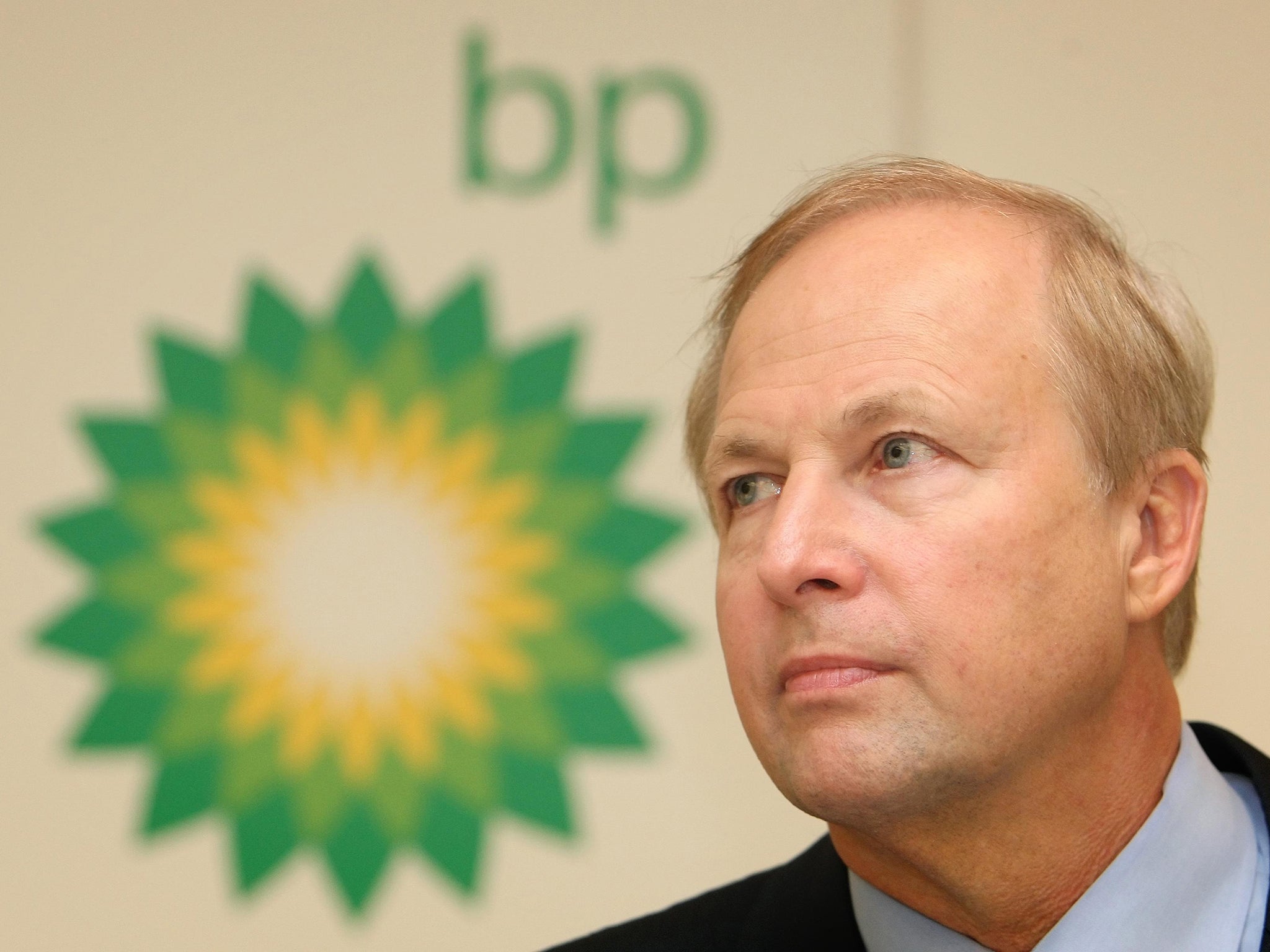BP: A £5m cut in boss Bob Dudley's package won't stop the CEO pay madness
The BP boss will still be paid an absurd amount of money. Legislation is the only way to prevent future BPs from handing CEOs big rises after reporting thumping losses

An outbreak of sanity at BP?
The oil giant is reportedly preparing to announce plans to trim Bob Dudley’s maximum pay by £5m. It follows the embarrassment of last year’s shareholder vote against the company’s remuneration report.
BP, you see, paid Mr Dudley nearly $20m (£16m) in 2015, an increase of 20 per cent over the previous year’s number, despite the company racking up a $5.2bn loss.
The causes of that loss - falling oil prices and a $9.8m charge to settle claims related to the Deepwater Horizon disaster that occurred during his predecessor’s tenure - were outside of Mr Dudley’s control.
But given CEOs commonly enjoy huge awards when factors outside their control result in bumper profits for their companies, surely the reverse ought to be true. Particularly when you think about the way people who chair corporate remuneration committees bang on about the importance of aligning bosses’ interests with those of shareholders.
Were that to happen, CEOs would share the pain along with the investors who pay them after a bad year, regardless of the cause. There would be no need for expensive extra sweeties to motivate them to turn things around if that happened.
BP sought to defend the rise, as companies always do, by pointing to Mr Dudley's targets. There were exceeded in 2015, it said.
However, if you accept such targets as valid - and the way big businesses set them has been widely criticised by investor groups - it still doesn’t invalidate the point about the aligning Mr Dudley’s interests with those of his investors.
It didn’t help BP’s case that, while his peers hardly suffered from the sector’s woes, a report from ISS Corporate Solutions revealed that they had, on average, seen a modest fall in the overall size of their awards during the year in quesiton.
Set against that, Mr Dudley’s bumper rise made for a particularly bad look.
I’d like to see some analysis from the likes of ISS, or Pirc, or another governance watchdog, when the details of how the reported cut will work in practice are made clear. When it comes to bosses pay there’s almost always a devil to be found in those details.
But even if Mr Dudley faces a straight forward reduction, some £5m taken off the top of his package, it will merely move it from "crazy" to "slightly less crazy".
The real problem with packages like his is the ball park they are in. The reduction under discussion doesn’t change that, and just look at the fuss it took to even get there.
Big institutional investors don’t, as a rule, enjoy voting against the boards of companies in which they invest. When they’re unhappy, they usually like to make their feelings known in private, to preserve the illusion of harmony when the annual meeting rolls around.
They did that with BP and were ignored. Such was their frustration that some even took to calling the company out in public at an ill humoured event.
This fight is by no means over. It’s only really just beginning. And, remember, we’ve been here before. Cast your mind back to the so-called "shareholder spring" of 2012. While it was never as significant as the hype suggested, there were an unusual number of investor rebellions over pay that year.
Business news: In pictures
Show all 13But, as the case of Mr Dudley amply demonstrates, normal service was swiftly resumed.
There has been talk about a repeat performance this spring, amid concerns that Prime Minister Theresa May will respond to mounting public unhappiness about the executive pay racket by legislating.
She should do that, regardless of whether it happens or not. It’s the only way to stem a tide of madness that led to Mr Dudley getting a 20 per cent rise after a $5.2bn loss in the first place.
Subscribe to Independent Premium to bookmark this article
Want to bookmark your favourite articles and stories to read or reference later? Start your Independent Premium subscription today.

Join our commenting forum
Join thought-provoking conversations, follow other Independent readers and see their replies